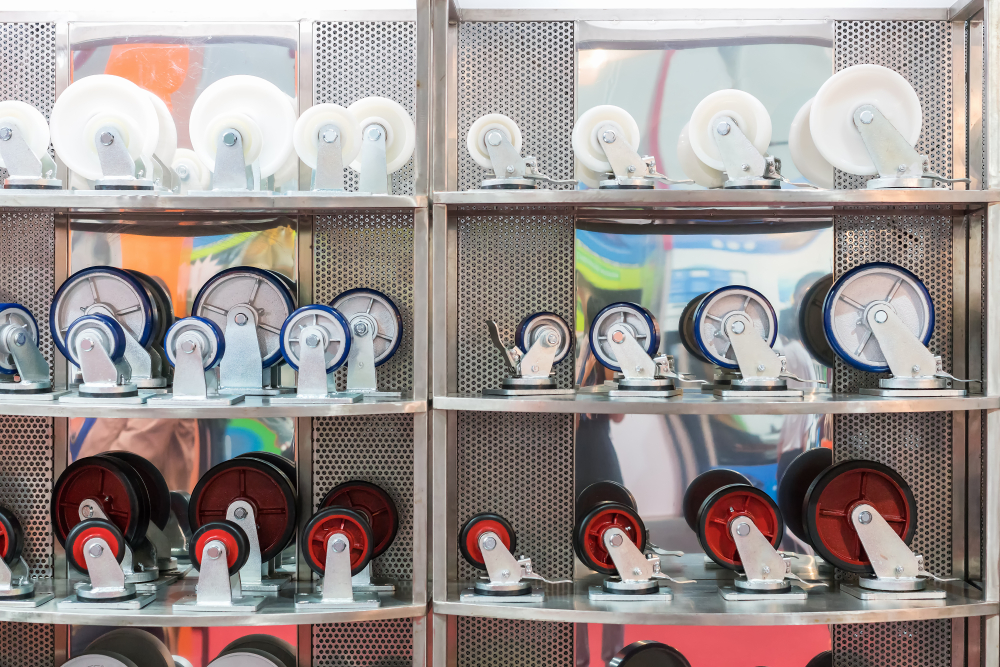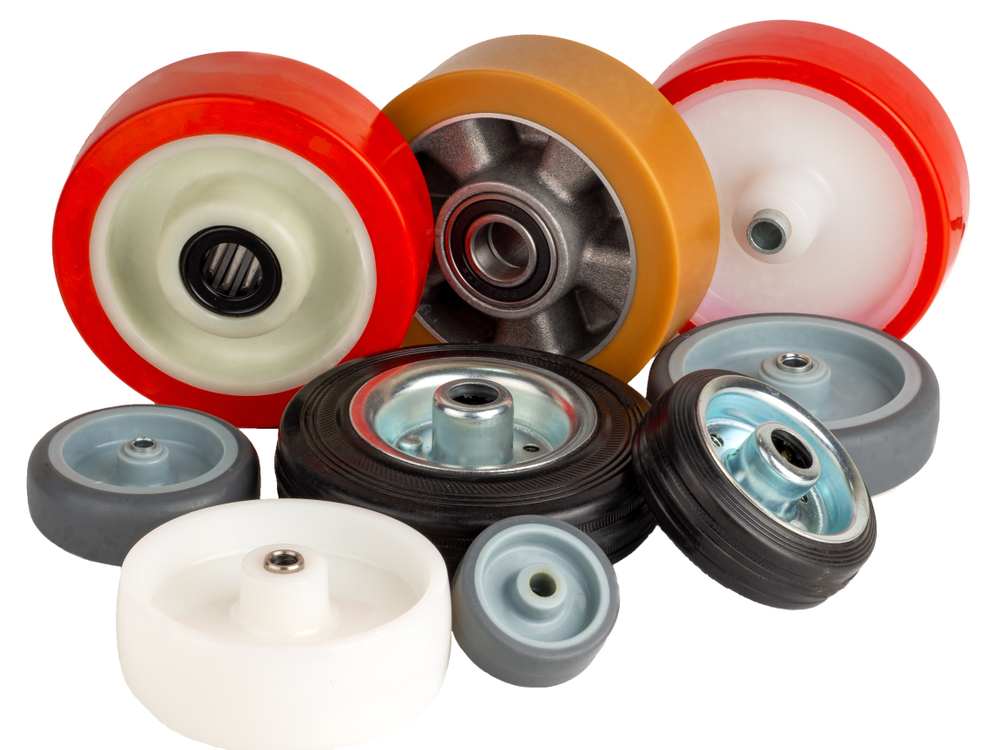15th April 2024
The Importance Of Load Capacity In Castor Wheels
When it comes to selecting castor wheels for any application, understanding the importance of load capacity is paramount. Whether for industrial equipment, office furniture, or retail display units, the right castor wheels not only improve mobility but also enhance safety and efficiency.
Here at Castor-wheels.co.uk we understand just how crucial the correct load capacity can be when deciding which castor wheels you need, so we have provided some hopefully useful guidance on selecting the right wheels for the weight they need to support.
Understanding Load Capacity in Castor Wheels
Load capacity refers to the maximum weight that each castor wheel can safely support. This is not just about the weight of the object but includes any dynamic loads added during movement, such as when transporting goods over uneven surfaces or through rapid changes in motion.
Choosing castor wheels with an inadequate load capacity can lead to numerous problems. These include wheel collapse, damage to the equipment or floors, and even potential injuries to operators. Conversely, selecting wheels with a higher-than-necessary load capacity can unnecessarily increase costs and reduce the availability of suitable options.

Factors Influencing Load Capacity
Several factors affect the load capacity of a castor wheel:
– Material: Castor wheels are made from various materials, including rubber, nylon, polyurethane, and steel. Each material has different load-bearing properties. For instance, steel wheels are suited for very high loads, whereas rubber wheels might be selected for lighter loads and noise reduction.
– Wheel Diameter: Larger wheels distribute weight more effectively, generally supporting heavier loads and providing easier mobility over obstacles or rough surfaces.
– Wheel Width: Wider wheels have a larger surface area in contact with the ground, which helps distribute the weight of the load more evenly and enhances stability.
– Bearing Type: The type of bearing used in a castor also influences its load capacity. Ball bearings are ideal for heavier loads and reduce the effort required to move the castor, whereas plain bearings are suitable for lighter loads and require less maintenance.
Calculating Required Load Capacity
To determine the appropriate load capacity for your castor wheels, try following these steps:
- Calculate Total Weight: Add the weight of the equipment or furniture to the maximum load it will carry. This gives you the total weight that your castor setup needs to support.
- Divide by Number of Wheels: Divide this total weight by the number of wheels on the equipment. This calculation assumes an even distribution of weight across all wheels, which is typical but can vary based on design.
- Add a Safety Margin: It’s advisable to add a safety margin to the load capacity. A common approach is to add 25-30% to the calculated weight. This margin accounts for any unforeseen overloading and the dynamic forces that occur during movement.
Selecting the Right Castor Wheels
Once you have a clear understanding of the required load capacity, you can then look to move on to selecting the appropriate castor wheels. Consider the following tips:
– Match Material to Environment: Ensure the material of the wheel is suitable for the environment in which it will operate. For example, choose non-marking rubber wheels for indoor use on delicate flooring and polyurethane or nylon wheels for environments where chemicals or oils are present.
– Check Specifications: Always refer to the manufacturer’s specifications for load capacity and ensure the castors are tested to meet these claims. Castor-wheels.co.uk prides itself on being a reputable supplier with nearly two decades of experience. We provide detailed specifications and can offer advice based on any queries you may have.
– Consider Floor Conditions: Evaluate the conditions of the floor. Rough or uneven surfaces may require wheels designed for greater impact resistance and with larger diameters to navigate obstacles smoothly.
– Evaluate Frequency of Movement: The frequency with which the castors will be moved, and the typical distances involved should also influence your choice. Frequent movement over long distances might necessitate wheels designed for durability and ease of movement, such as those with precision bearings.

Choosing the right load capacity for castor wheels is essential to maintain the longevity of the wheels, ensure safety in operations, and prevent damage to floors and equipment. By carefully calculating the required capacity and considering the conditions in which the wheels will operate, you can select the most appropriate castors for your needs.
Simply give us a call on 01279 656189, or email via sales@castor-wheels.co.uk, to get in touch with a friendly team member at castor-wheels.co.uk today. We welcome any enquiries you may have regarding our products or services.
For professional advice and a wide selection of high-quality castor wheels tailored to various applications, browse our collection today. Our experts are ready to assist you in finding the perfect wheel solution to keep your operations moving efficiently and safely.